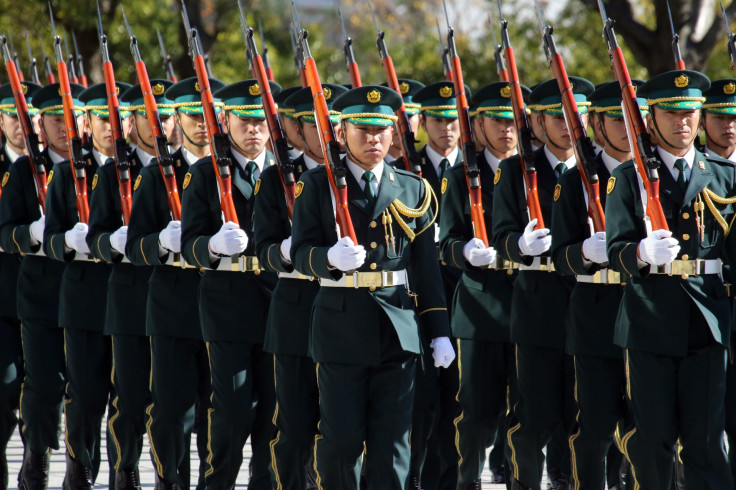Japan's Defense Budget Likely To Top 5 Trillion Yen Amid Territorial Disputes With China

Japan’s defense budget for the next fiscal year is likely to top 5 trillion yen ($40.8 billion) for the first time ever, according to media reports. The budget, which is expected to be finalized later this month, will provide the Shinzo Abe-led government a significant boost toward strengthening the role of its armed forces -- a sensitive issue for its neighbors China and South Korea because of the aggression they faced during World War II.
The defense budget also includes additional funding for the government’s plan to build a controversial U.S. military base in the southern island of Okinawa -- a plan that has faced significant opposition from locals. According to a report by Nikkei Asian Review, the budget allocation for the planned base in Okinawa is expected to climb significantly from last fiscal year’s 142.6 billion yen ($1.1 billion).
The planned increase in the defense budget comes amid an ongoing territorial dispute between Japan and China in the East China Sea. At the center of the long-standing dispute is a cluster of eight uninhabited islands, known by China as Diaoyu and by Japan as Senkaku. Both countries lay claim to the islands as the waters in the region offer rich fishing grounds and are thought to contain oil deposits.
Faced with increased Chinese military activities in the region in recent months, Japan’s defense ministry is believed to have sought additional funds to fortify the island chain. If the budget is approved, it would be the fourth consecutive rise in defense spending since Abe took office in December 2012.
Under Abe’s leadership, Japan has witnessed a dramatic policy shift from its post-war pacifism. Currently, under Article 9 of Japan’s constitution -- which came into effect after World War II -- Japan renounced war “as a sovereign right of the nation.” However, in July last year, the country ended the ban on exercising “collective self-defense,” and earlier this year, in September, the country’s parliament voted into law the defense policy shift that could allow its troops to fight overseas for the first time since 1945.
© Copyright IBTimes 2024. All rights reserved.






















